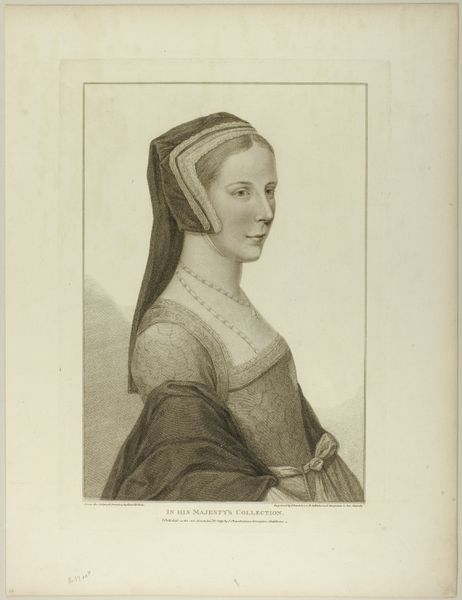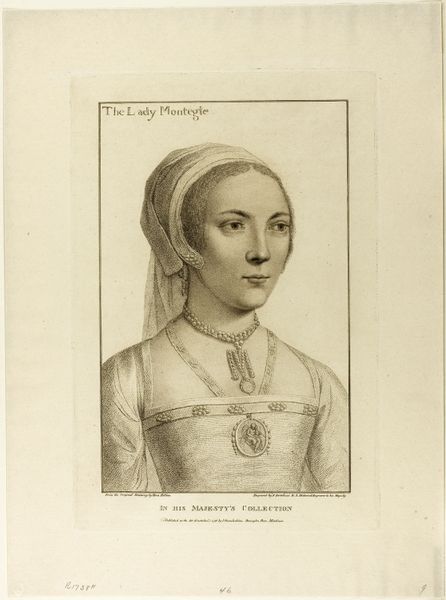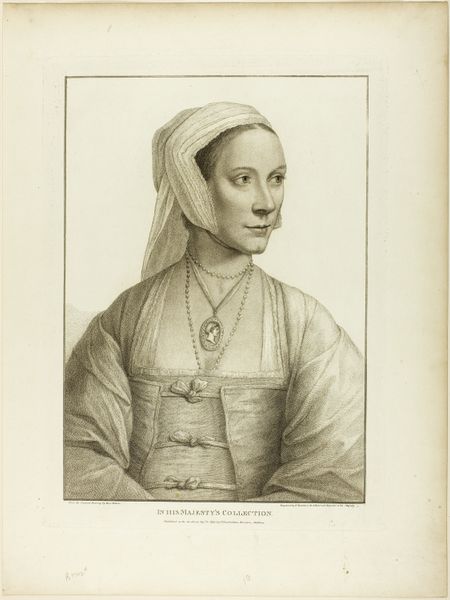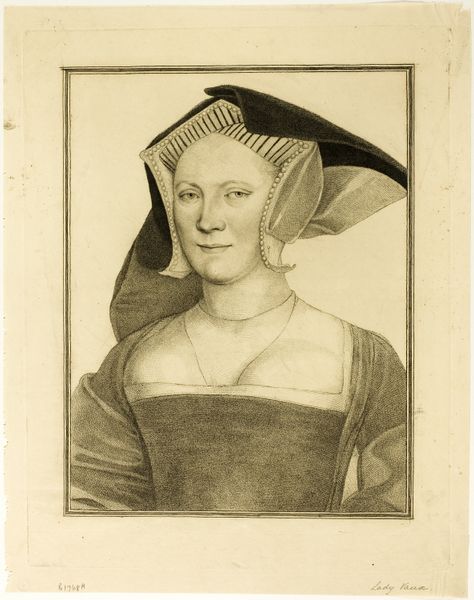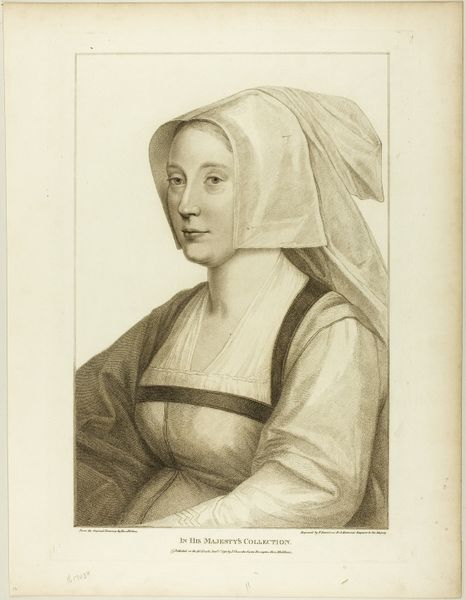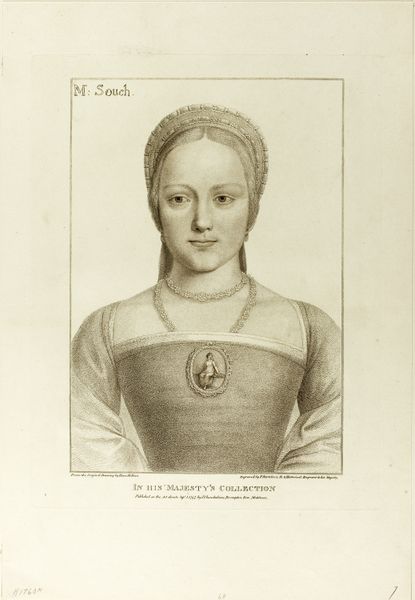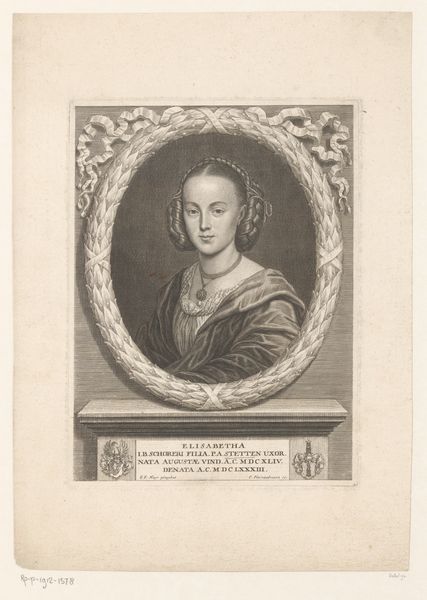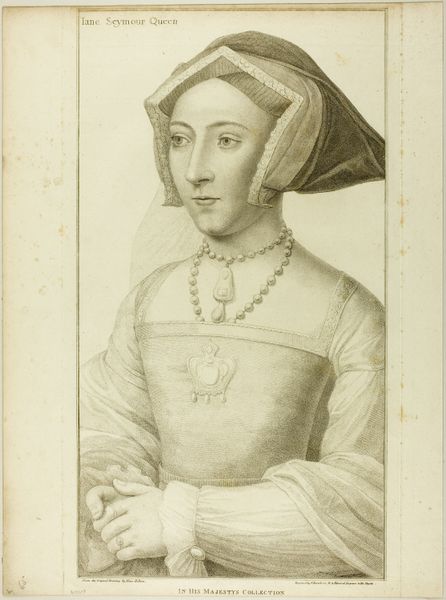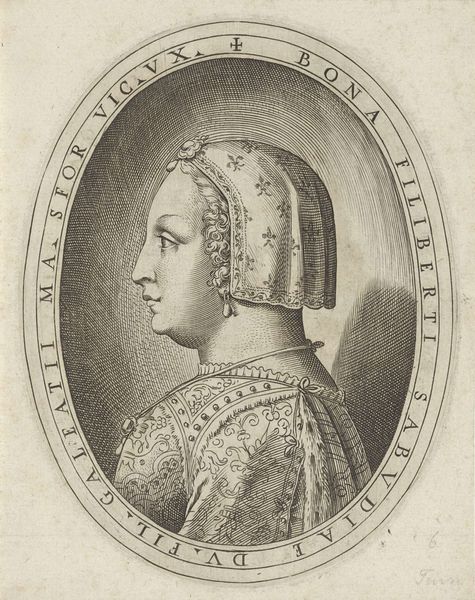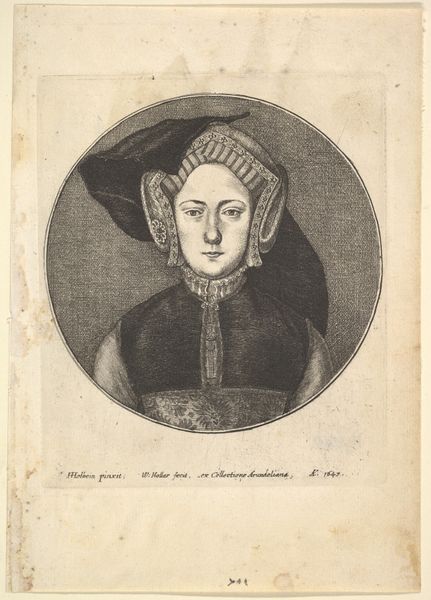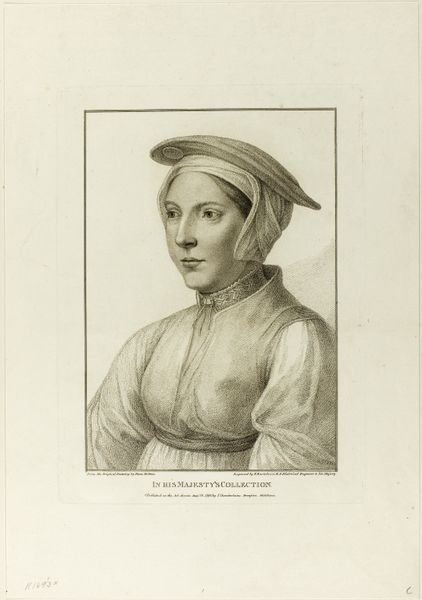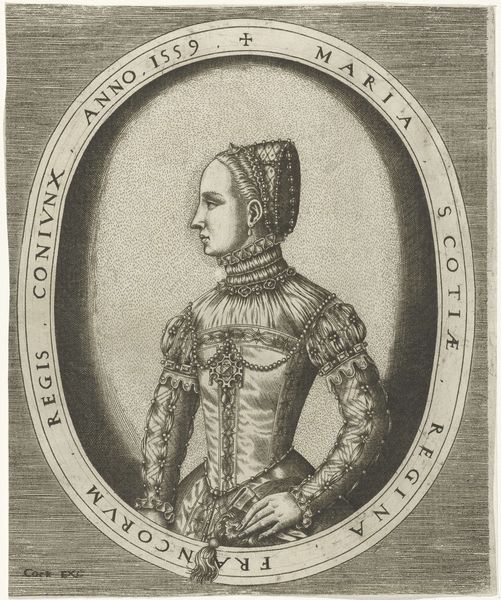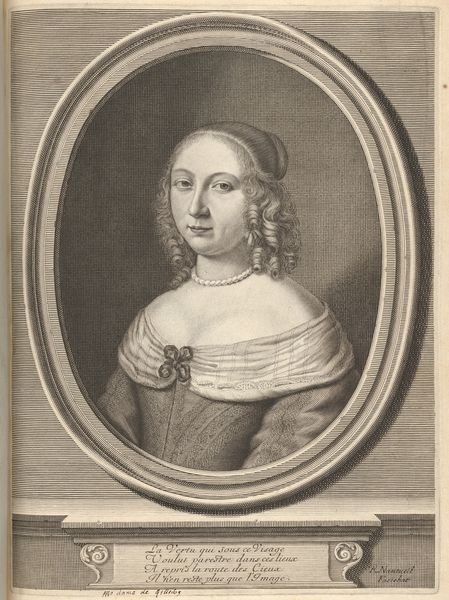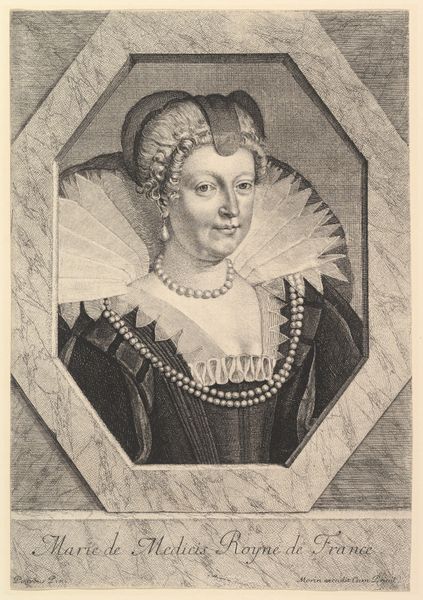
drawing, print, paper, engraving
#
portrait
#
pencil drawn
#
drawing
#
neoclassicism
# print
#
paper
#
pencil drawing
#
portrait drawing
#
academic-art
#
engraving
Dimensions: 287 × 207 mm (image); 360 × 254 mm (plate); 394 × 303 mm (sheet)
Copyright: Public Domain
Editor: This is "Lady Audley," an engraving from 1793 by Francesco Bartolozzi, now at the Art Institute of Chicago. I’m immediately drawn to her direct gaze; it feels like she's looking right through me! How do you interpret this portrait? Curator: I see a careful construction of social identity through symbols. Her attire – the elaborate headdress and jewelry – speaks of nobility and perhaps marital status in the late 18th century, right? Think about what those symbols communicate in the broader culture of that era. What values do they project? Editor: Definitely wealth and status. But also, maybe constraint? The headdress seems almost like a cage. Curator: An interesting observation. Is the apparent constraint only physical? Or does it perhaps hint at societal expectations imposed upon women of her standing? Remember that symbols can be deliberately used to portray women either as paragons of virtue or as objects of beauty and status. The portrait freezes her within a framework of expectations, yet her gaze, as you observed, hints at something more… a depth of personality? Editor: So it's not just about surface-level beauty or wealth; the artist is also hinting at the internal life of the subject? Curator: Precisely. The cultural memory encoded within such portraits lies not only in the symbols of status, but also in the psychological depths they may or may not reveal. The averted eyes of the modest, compared to the assured gaze of someone more forthright: that visual vocabulary creates narratives around social roles. How successfully the artist translates those narratives speaks volumes. Editor: That's fascinating. I hadn’t considered how much a single portrait could tell us about social and psychological expectations. Curator: It's a mirror reflecting both the individual and their world, and as such it shows that symbolism is so important to how we can read the art.
Comments
No comments
Be the first to comment and join the conversation on the ultimate creative platform.
